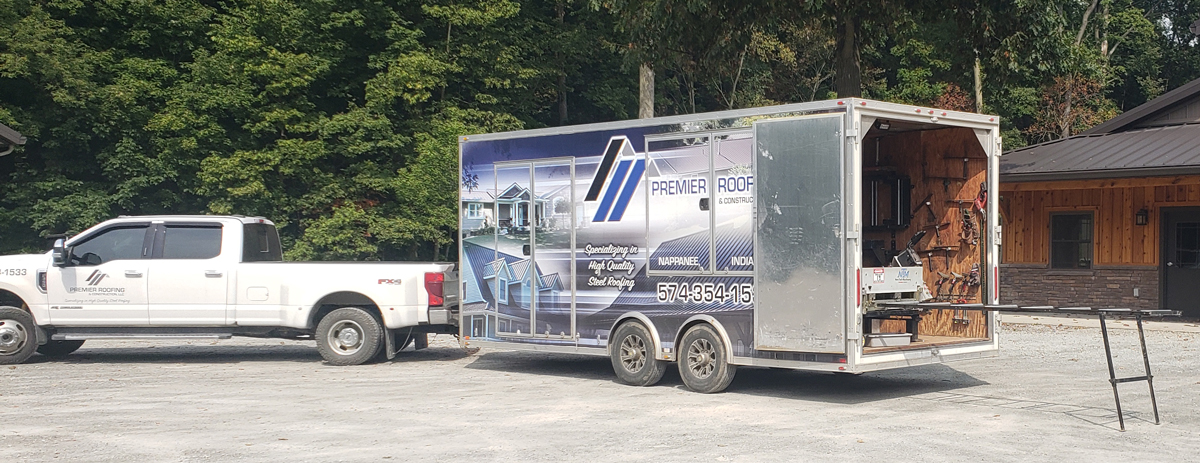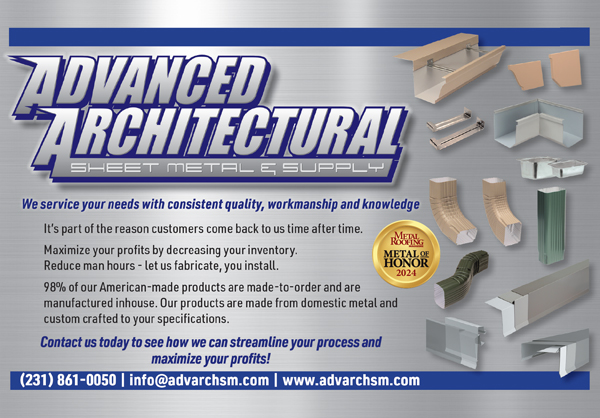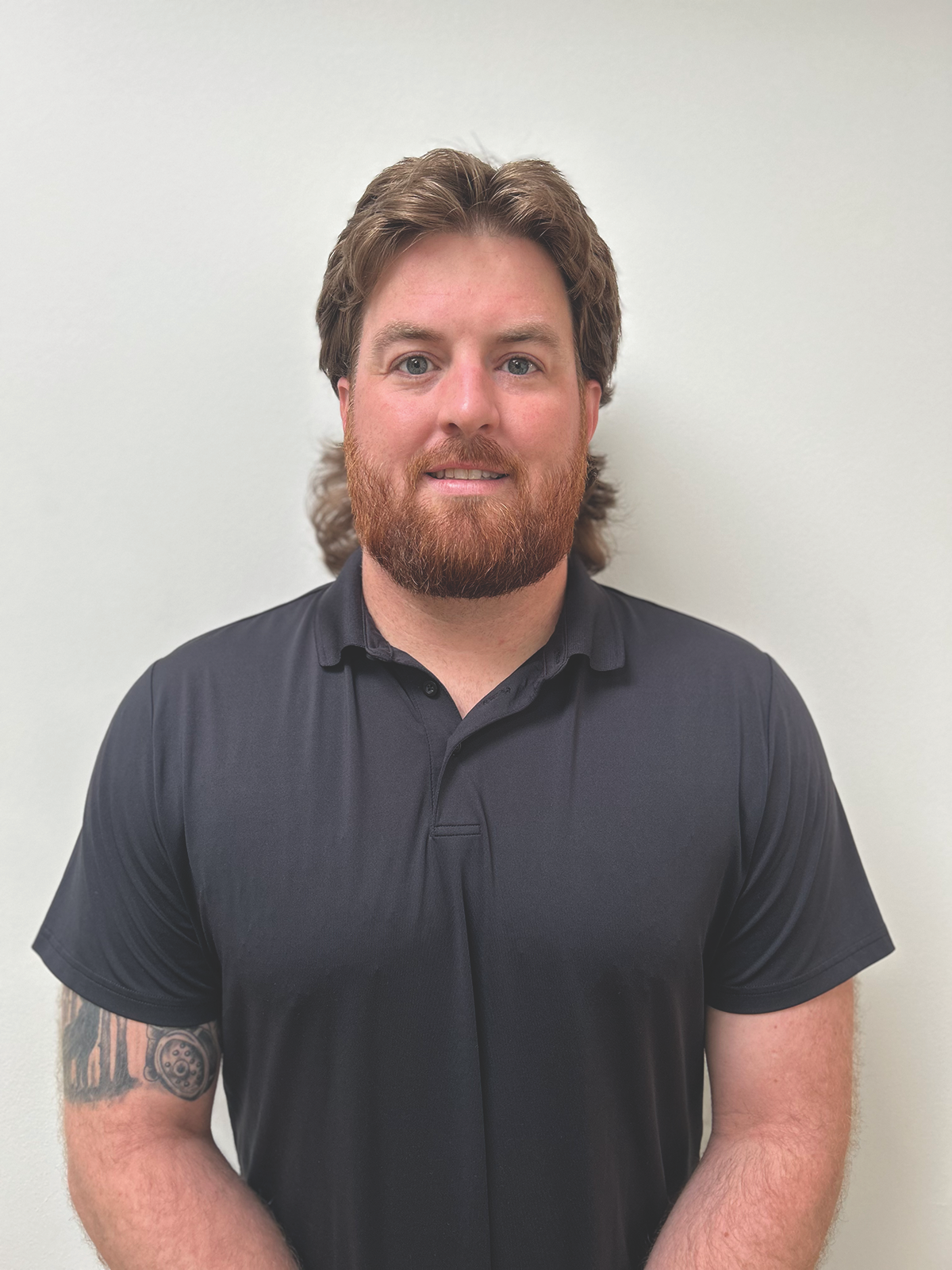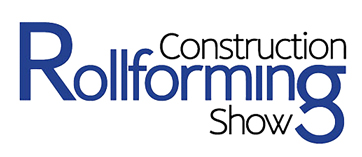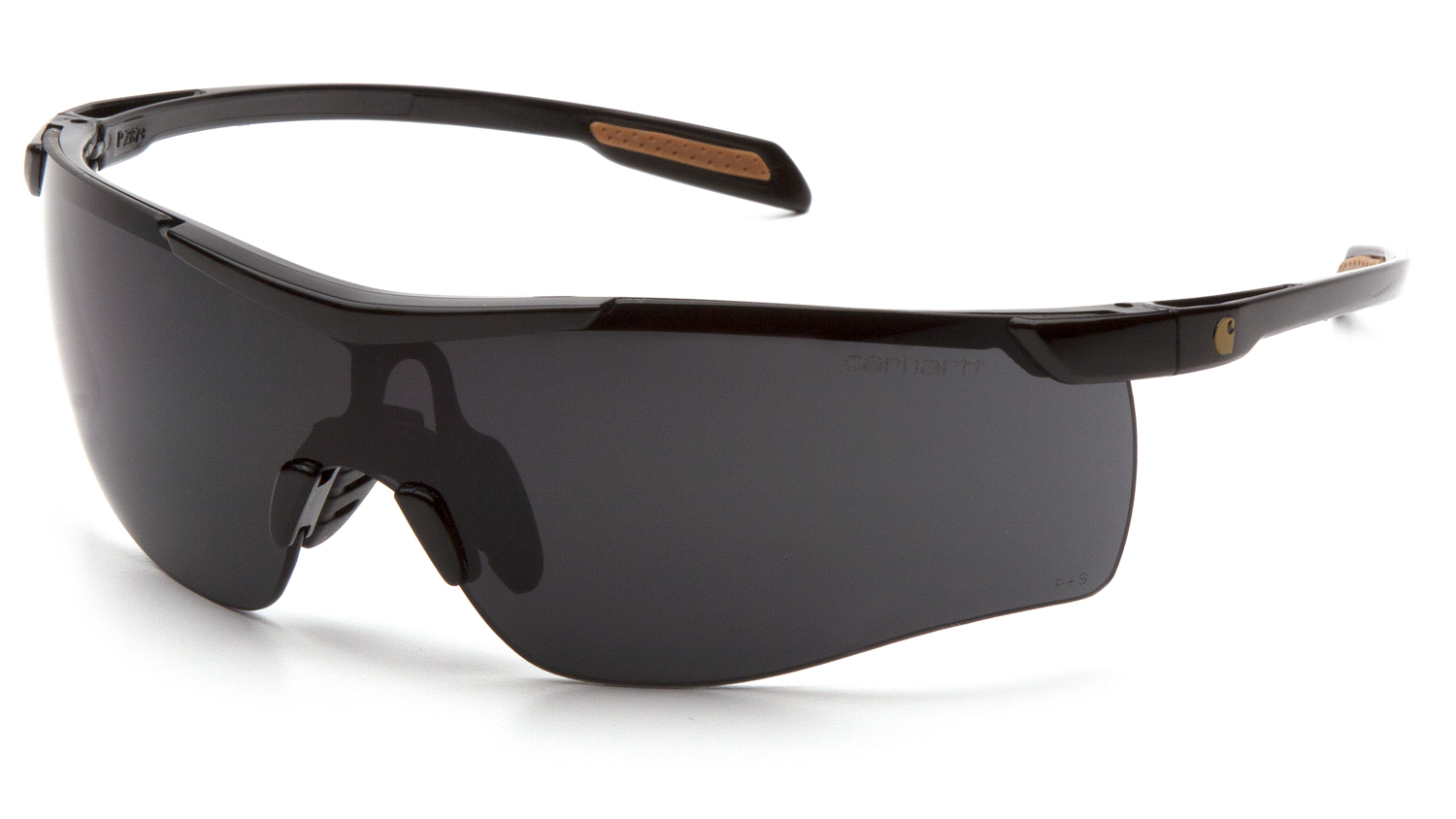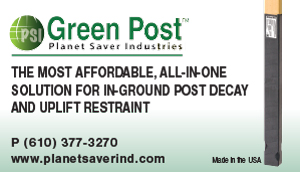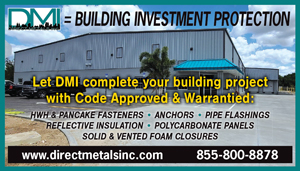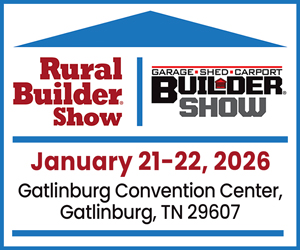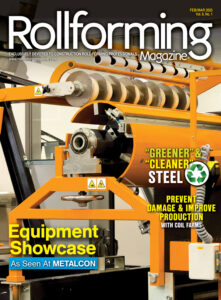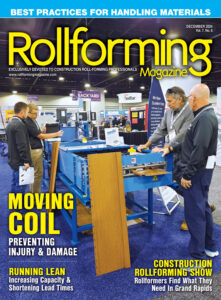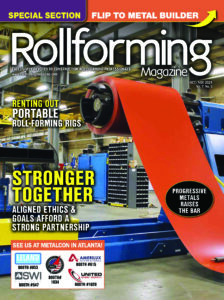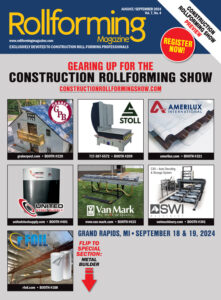Matt Burkholder has a knack for finding opportunities when faced with challenges. He got his start in the construction industry working for another contractor. When his employer’s business slowed, he ventured out on his own and founded Premier Roofing and Construction in 2011.
Specializing in roofing and post-frame construction, the Nappanee, Indiana, business also worked on some metal roofs. When Matt needed standing seam roof panels, he hired someone with a portable roll-forming machine, which was on an open trailer, to come and roll on-site. “The first panels were always dusty and dirty with the machine being on an open trailer,” Matt recalls.
As the company grew and took on more metal roofing jobs, Matt invested in a NewTech portable roll former but thought it would be better if the roll-forming machine was in an enclosed trailer. Working with inTech Trailers, he spent considerable time designing an enclosed trailer with the intention of marketing it to other roofing companies. His first enclosed trailer rolled into service in 2012, and he and his crew were able to experience firsthand how much nicer and easier it was to use.
However, due to circumstances in the local trailer market, he realized that while the enclosed trailer was a fantastic improvement over an open trailer, his business needed to take a different path. Standing seam roofing was really taking off, so he bought a second roll former and began offering roll-forming services to other local contractors. “I had a good friend who’s a contractor,” Matt recalls. “I asked him if he wanted to take the trailer and see how he liked running his own machines.” He, too, was impressed with the enclosed roll-forming rig.
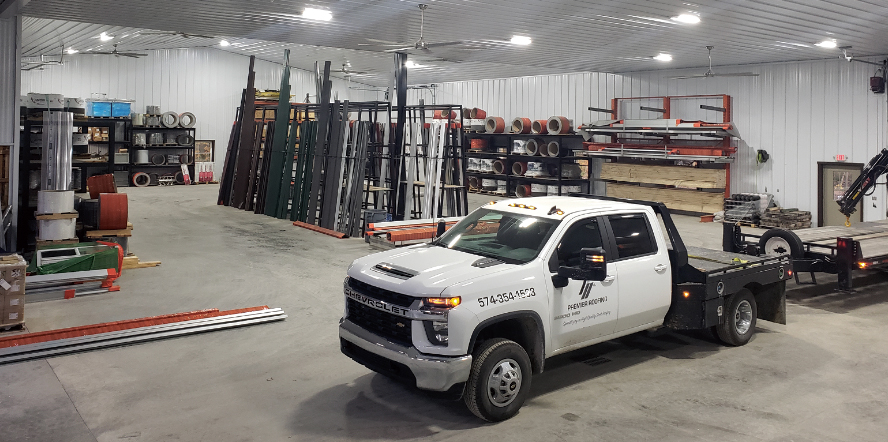
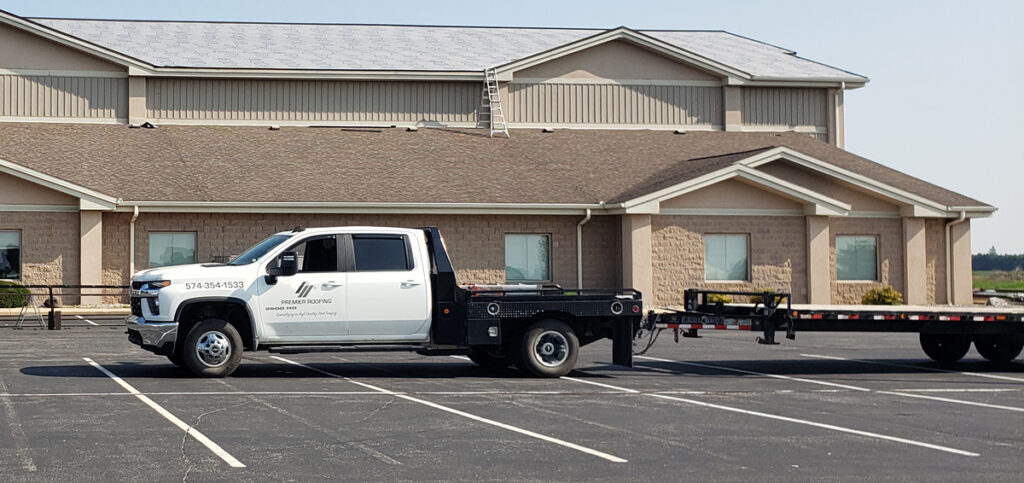
Portable roll-forming rig “at work.” 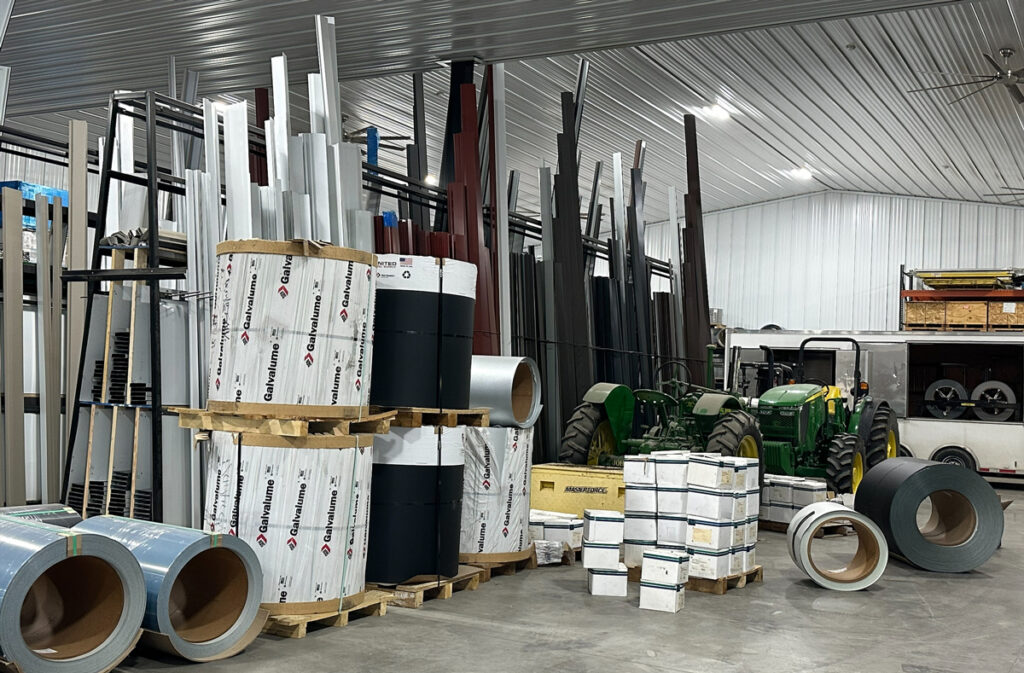
Shield Wall Media photo.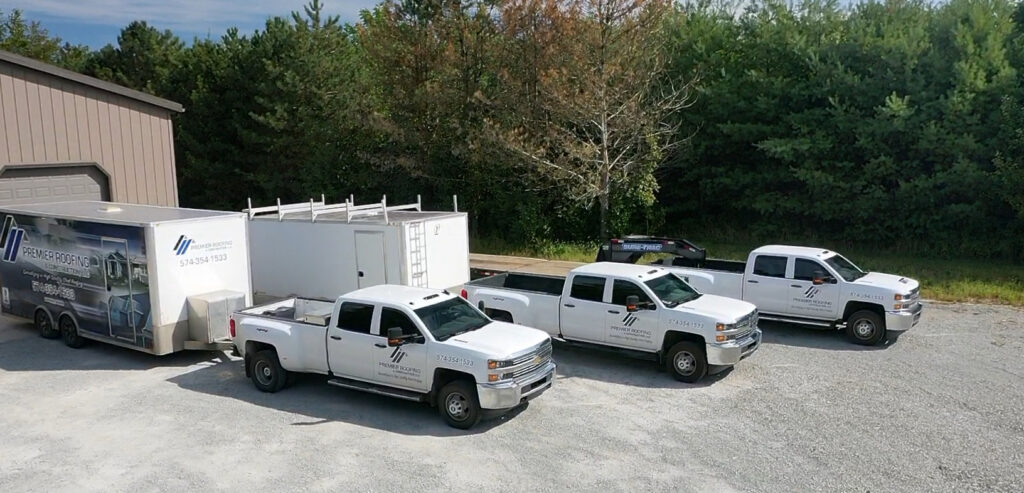
Premier Roofing has six
enclosed roll-forming rigs for rent.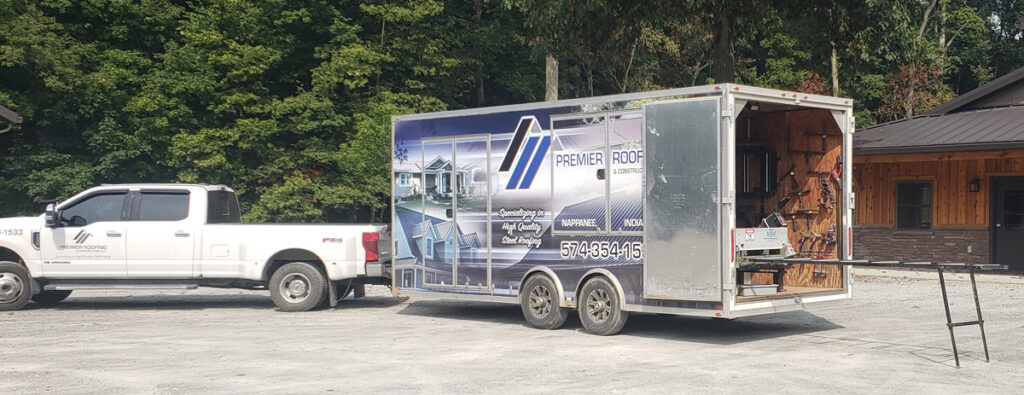
Each portable trailer is a fully autonomous unit, complete with all supplies necessary to complete the job and a power unit. Photos courtesy of Premier Roofing & Construction unless otherwise indicated.
So, after the positive feedback, outfitting and stocking enclosed trailers became Premier’s focus, and it has really taken off.
“Basically, contractors call and schedule a trailer about a week before they need it.” The roofer provides Matt with a list of trims, which are made in Premier’s metal shop. “We load the trim and coils and get the trailer ready, and they come and pick it up,” Matt explains.
Convenience and Quality
To provide what roofers need, Premier offers many metal roof and siding profiles. Matt says the most popular ones right now are 1” and 1½” fastener flange profiles. The company also offers 1¾” snap lock, 2” mechanical seam, 3” trapezoidal standing seam, flush wall panels, board and batten, single lap siding, double lap siding, and Dutch lap siding. About the diverse offering, he says, “Instead of sending a customer on to someone else, we try to design or make whatever they want.”
Getting the trailer ready includes stocking it with everything needed for the job. In addition to trims, this includes coil from United Steel Supply or CMG; caulk, roof sealant, and pipe boots from Levi’s Building Components; fasteners from Levi’s Building Components and Wildcat; rivets, ridge vents, and more. “Whatever they could possibly need on a roof,” Matt says. Trailers are stocked with AceClamp snow retention, too. “With our profiles, AceClamps are so easy to work with.”
All the necessary hand tools are also supplied in the trailer, including tools for prepping panels and mechanical seamers. Hand tools are from Malco Tools and Wuko, and seamers are from RollFormer LLC.
Each trailer is a fully autonomous unit, complete with power. “A lot of roll formers come with gas engines,” Matt continues. “We buy them with the electric power pack and mount a generator on the outside in an enclosed box on the trailer. It gets noise away from the machine and is the power source. It’s guaranteed that no matter what site you’re on, you’re going to need power for something. Each trailer comes with a generator big enough to power the electric power pack for the roll former, plus whatever the contractor needs to do on the job site—like charge batteries and run lights.” With this setup, the contractor doesn’t need any other power source; the generator can handle the load.
The contractor picks up the trailer, completes their project, and brings the trailer back to Premier. There are charts in the trailer where the contractor keeps track of whatever they use, and the computerized controller displays the amount of metal used. Premier invoices them only for the materials and products used.
Matt estimates the loaded trailers weigh between 12,000-17,000 pounds. “It’s possible for a ¾-ton truck to move it, but they really need a 1-ton truck. We’ll deliver the trailer if someone doesn’t have a pickup [capable of hauling it].”
Usually contractors only need the trailer for a day or two, but sometimes it’s longer. “We give them as much time as they need, within reason,” Matt continues. “Most guys are pretty conscientious about it. We don’t charge for renting the trailer out. They buy the materials—that’s the service they get.”
Insurance is an important part of protecting the rental equipment and company. “We have insurance that covers us if something happens,” Matt explains. “And if a new contractor starts, we need to see proof of insurance. Their insurance would cover any damages. The machines are actually pretty bulletproof; someone beating up the machine isn’t a big worry, but there’s still a chance of an accident or something happening.”
High-quality suppliers and equipment have been a key to building Premier’s success. “If someone is thinking about going into this,” Matt advises, “find reputable equipment and dealers.” He speaks highly of NewTech, which they acquired from CIDAN and have used since the beginning. “Another thing I’d recommend is quality products. We hit some rough spots starting up, trying to find a good supplier and good products. United Steel treats us very well; we’ve been with them since we started.”
Premier Roofing has found success with its suppliers, equipment, and this business model. It now has six enclosed roll-forming rigs that it rents out to contractors. Five of the six trailers hold a NewTech standing seam roll-forming machine. The sixth trailer houses an Eastside Machinery portable roll former for making siding.
Conclusion
Matt Burkholder’s journey with Premier Roofing is a testament to his ability to identify opportunities within challenges. What started as a venture into roofing has evolved into an additional revenue stream by providing fully outfitted, enclosed roll-forming trailers to local contractors. By addressing the needs of roofers and offering top-tier equipment and supplies, the company has carved out a successful niche. He gives the credit to God for the growth they have seen and also to the dependable and dedicated employees that helped him get where they are today. His advice to others: Invest in reputable equipment, partner with quality suppliers, and always look for ways to improve, which are all principles that pay dividends. RF

